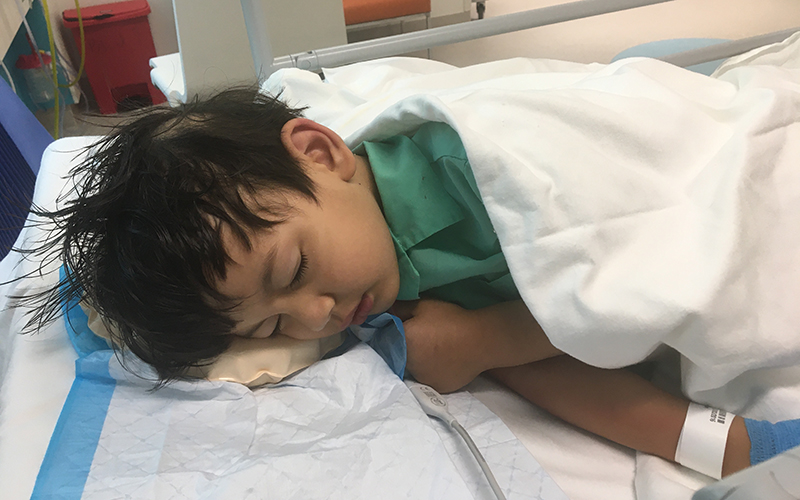Search

News & Events
Strep A hits Perth family twice in one yearCharlie, 6, has ended up in hospital twice with invasive Strep A infection over his short lifetime – the first time when just three years old.

News & Events
RSV responsible for one out of every 50 childhood deaths worldwideThe urgency for a world-first respiratory syncytial virus vaccine is at an all-time high.
Research
Characterising the epidemiology of RSV in Australian children through record linkage: clinical burden, outcomes and risk factorsHannah Peter Moore Richmond OAM BSc (Hons) GradDipClinEpi PhD MBBS MRCP(UK) FRACP Head, Infectious Diseases Research Head, Vaccine Trials Group 08
Research
Cord-blood respiratory syncytial virus antibodies and respiratory health in first 5 years of lifeTo determine the potential longer-term effects of maternal antenatal respiratory syncytial virus (RSV) vaccination, we examined the association between cord-blood RSV-neutralizing antibodies (RSV-NA) and RSV infections in the first 2 years of life, RSV-NA at 3 years, and respiratory health to age 5 years.
Research
Head-to-Head Comparison Between Respiratory Syncytial Virus and Human Metapneumovirus Bronchiolitis in the Setting of Increased Viral TestingWe compared the epidemiology, severity and management of hospitalized respiratory syncytial virus (n = 305) and human metapneumovirus (n = 39) bronchiolitis in a setting with high respiratory virus testing (95% of admissions tested). Respiratory syncytial virus-positive infants were younger and tended to require more hydration support and longer hospital stays compared to human metapneumovirus-positive infants. Respiratory support requirements were similar between groups despite significant age differences.
Research
A phase I clinical trial assessing the safety, tolerability, and pharmacokinetics of inhaled ethanol in humans as a potential treatment for respiratory tract infectionsCurrent treatments for respiratory infections are severely limited. Ethanol's unique properties including antimicrobial, immunomodulatory, and surfactant-like activity make it a promising candidate treatment for respiratory infections if it can be delivered safely to the airway by inhalation. Here, we explore the safety, tolerability, and pharmacokinetics of inhaled ethanol in a phase I clinical trial.
Research
Pragmatic Adaptive Trial for Respiratory Infection in Children (PATRIC) Clinical Registry protocolAcute respiratory infections (ARI) are the most common cause of paediatric hospitalisation. There is an urgent need to address ongoing critical knowledge gaps in ARI management. The Pragmatic Adaptive Trial for Respiratory Infections in Children (PATRIC) Clinical Registry will evaluate current treatments and outcomes for ARI in a variety of paediatric patient groups.
Research
The Respiratory Microbiome in Paediatric Chronic Wet Cough: What Is Known and Future DirectionsChronic wet cough for longer than 4 weeks is a hallmark of chronic suppurative lung diseases, including protracted bacterial bronchitis, and bronchiectasis in children. Severe lower respiratory infection early in life is a major risk factor of PBB and paediatric bronchiectasis.
Research
Respiratory Syncytial Virus Reinfections in Children in Western AustraliaRespiratory syncytial virus (RSV) reinfection in children is poorly understood. We examined the incidence, characteristics, and outcomes of hospital-attended RSV reinfections in children <16 years in Western Australia between 2012 and 2022.
Research
Respiratory syncytial virus in children: epidemiology and clinical impact post-COVID-19Respiratory syncytial virus (RSV) remains a leading cause of mortality and morbidity worldwide. RSV seasonality was disrupted by COVID-19-associated nonpharmaceutical interventions (NPIs). We review RSV seasonality, molecular epidemiology, clinical manifestations, and community awareness to inform future prevention strategies.
